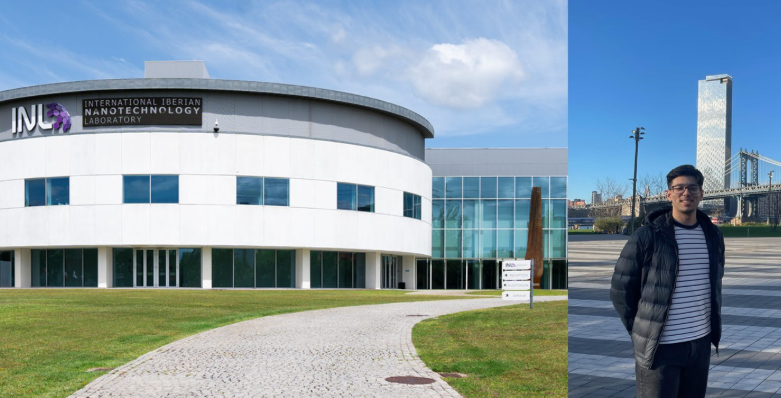
The International Iberian Nanotechnology Laboratory (INL), located in Braga – Portugal, is one of Europe’s leading research centers for nanotechnology. It brings together scientists from around the world to explore innovative solutions with global impact, ranging from medicine and energy to advanced manufacturing and electronics. This past July, Diogo Perdigao, a Portuguese researcher specializing in heat transfer and fluid mechanics, joined INL to carry out a project on microdroplet generation.
Perdigao’s work focused on a systematic review of microdroplet generation, his research examined the key factors that influence droplet formation and how their performance might be improved.
Microdroplet generation is widely used in biotechnology, particularly in areas such as cell encapsulation, drug delivery, and diagnostics. But researchers are now asking whether the same principle — creating and controlling tiny droplets of liquid — can be adapted to address some of the world’s toughest challenges in thermal management.
“What excites me about this technology is its adaptability,” said Perdigao. “In biotechnology, droplets are used to carry cells or drugs. But if we spray droplets onto a hot surface, they evaporate instantly, and that phase change absorbs heat very efficiently. The concept is simple physics, but it opens up so many possibilities.”
How Microdroplet Cooling Could Work
When sprayed onto hot surfaces, microdroplets evaporate almost instantly, absorbing heat in the process. This makes it possible to cool very specific hotspots without relying on large-scale cooling systems. This is a potential way to make future technologies more efficient and sustainable.
Electric Vehicles: Safer and Longer-Lasting Batteries
As electric vehicles become a cornerstone of clean mobility, their batteries must be kept within safe temperature ranges. Microdroplet cooling is being investigated as one possible way to ensure stability, efficiency, and longer battery life.
“In EVs, droplets could be introduced through fine nozzles inside the battery’s cooling channels,” said Perdigao. “They would evaporate exactly where heat is generated, preventing spikes and improving efficiency.”
Semiconductors: Cooling the Next Generation of Chips
Semiconductors power everything from smartphones to supercomputers. But as chips get smaller and more powerful, they generate intense hotspots that are difficult to control. Microdroplet sprays are being studied as a potential solution.
“With chips, the challenge is localized overheating,” Perdigao explained. “Microdroplets could target those hotspots directly.”
AI Data Centers: Keeping the Digital World Sustainable
Artificial intelligence depends on large data centers filled with processors that run continuously. Cooling them is one of the biggest operational and environmental challenges today. Researchers are exploring whether microdroplet sprays could one day offer a greener, more efficient approach.
“In data centers, instead of cooling entire rooms with massive air systems, droplets could target individual processors,” Perdigao suggested. “That precision could make AI infrastructure more efficient, cheaper to run, and more sustainable.”
Nuclear Energy: Exploring New Layers of Safety
In nuclear energy, cooling is directly tied to safety. Scientists are investigating whether microdroplet-based spray cooling could act as an emergency safeguard in reactors, absorbing heat rapidly in critical scenarios.
“In nuclear reactors, spray cooling could serve as an extra layer of defense,” said Perdigao. “Even if it’s never the primary system, having that added resilience could be crucial.”
A Researcher Engaged in Global Challenges
“Microdroplet generation has the potential to transform the way we handle heat in critical technologies,” Perdigao emphasized. “It could mean safer batteries, more reliable microchips, more efficient data centers, and even safer nuclear reactors in the future.”
Through his project at INL, Perdigao contributed to an international effort to explore how emerging cooling technologies might shape the future of mobility, computing, AI, and energy.
“What excites me most is the link between fields,” he reflected. “A method born in biotechnology inspired my research in engineering. That kind of cross-disciplinary thinking is how we solve global problems.”
Currently preparing his dissertation thesis in Mechanical Engineering at the University of Minho, Perdigao’s work highlights the role of young researchers in pushing the boundaries of science and technology, and in shaping solutions that are both innovative and sustainable.
Media Details
Email: diogoperdigaodp@gmail.com
Website: https://orcid.org/0009-0001-2086-5154
Country: Portugal
Written By Liam Smith

